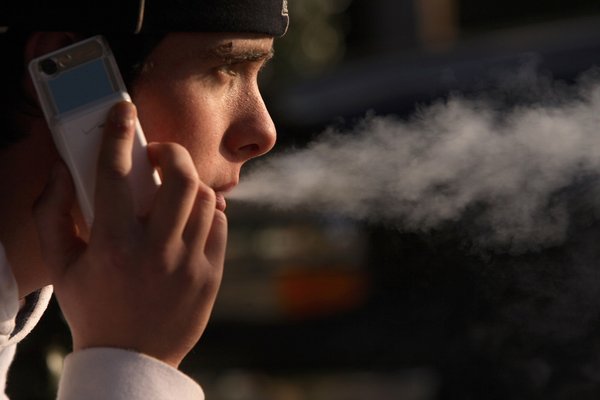Jim Whitehead: The evidence is in: Ban tobacco use in GF parks
GRAND FORKS—It seems that the proposed Park Board tobacco policy has some folks blowing more than smoke.
Among the assertions are the following:
▇ The policy is not based on good science.
▇ The policy is not based on good science.
▇ Youth are not influenced by the behavior of others.
▇ It will be unpopular in Grand Forks.
▇ It is paternalistic and a misuse of power.
▇ Golf and softball are adult activities and should be exempt from a chewing tobacco ban.
Let’s start by stating what is well known: First, tobacco products are harmful when used as intended; second, nicotine is highly addictive; third, most tobacco users start before the age of 18; and fourth, North Dakota has a major problem with youth smoking and chewing tobacco use.
Thus, it behooves local public health professionals and civic leaders to take reasonable action to address the issue—which, of course, begs the question of what is “reasonable.”
Well, is it reasonable to assume that the Grand Forks Park District should be interested in regulating unhealthy behaviors? Given that the district’s mission is “to provide the best parks, programs, facilities, forestry services and other services possible to promote a healthy and enjoyable lifestyle for all citizens of Grand Forks,” I would submit that it is quite reasonable to adopt policies that promote fidelity to its mission.
Is the proposed policy based on good science? Note that the risks of secondhand smoke have not been advocated as the basis for the proposed policy. In contrast, the rationale is far more about social norm issues such as the effects of role modeling and peer influence.
Of course, not all scientists agree, and I could certainly cherry-pick research papers that challenge their effects; but the weight of evidence seems to have impressed the scientists and public health professionals at the Centers for Disease Control and local public health departments.
Moreover, the science has been deemed good enough to underpin similar policies that have already been adopted by other local agencies and institutions that claim health-related missions, including Altru, UND and Grand Forks schools.
This is not “paternalism” in action. It is an objective and evidence-based attempt to address a serious public health concern.
The “good science” issue also is pertinent to the notion that the proposed policy “will be unpopular.” Those who have made that criticism may not be aware of the solid research design behind the two recent studies conducted on Grand Forks residents and on softball-team managers and golf-course users. The data shows that 78 percent of residents support the comprehensive tobacco-free policy (90 percent of frequent park users), and 84 percent of softball and golf participants are in favor. This is hardly an unpopular policy.
Moreover, when asked whether the proposed policy would “discourage youth from starting to use tobacco products, promote positive role-modeling” or “create an environment that promotes a healthy and enjoyable lifestyle,” well over 90 percent of respondents agreed.
Again, these data (obtained using good scientific methodology) overwhelmingly refute the notion that the policy will be “unpopular.”
Will this policy, if adopted, cause some people to bypass the city for destinations further south? Given that Manitoba intends to fine smokers $300 if they are caught puffing in provincial parks, beaches or playgrounds, it could be that hardened tobacco-using golfers might pass us by. But I doubt that will constitute enough of a revenue loss to Grand Forks to outweigh the health and health care cost-savings that will accrue from what is demonstrably a popular and science-based policy.
Thus, I hope that the Park District board will ignore these “smoke screens” and adopt the proposed tobacco policy at its meeting on Monday (May 4).
But I also hope that the board will recognize that golf and softball are not exclusively the domain of adults, and consequently, will be amenable to revisiting the chewing tobacco exemption sometime in the near future.
Given the alarming data on all forms of tobacco use by North Dakota’s youth, plus the near-overwhelming support for an all-inclusive comprehensive policy by Grand Forks’ residents and the city’s golfers and softball-team managers, I suggest that this is not an issue that can be “chewed over” and delayed too much longer.
http://www.grandforksherald.com/opinion/op-ed-columns/3734294-jim-whitehead-evidence-ban-tobacco-use-gf-parks
▇ It will be unpopular in Grand Forks.
▇ It is paternalistic and a misuse of power.
▇ Golf and softball are adult activities and should be exempt from a chewing tobacco ban.
Let’s start by stating what is well known: First, tobacco products are harmful when used as intended; second, nicotine is highly addictive; third, most tobacco users start before the age of 18; and fourth, North Dakota has a major problem with youth smoking and chewing tobacco use.
Thus, it behooves local public health professionals and civic leaders to take reasonable action to address the issue—which, of course, begs the question of what is “reasonable.”
Well, is it reasonable to assume that the Grand Forks Park District should be interested in regulating unhealthy behaviors? Given that the district’s mission is “to provide the best parks, programs, facilities, forestry services and other services possible to promote a healthy and enjoyable lifestyle for all citizens of Grand Forks,” I would submit that it is quite reasonable to adopt policies that promote fidelity to its mission.
Is the proposed policy based on good science? Note that the risks of secondhand smoke have not been advocated as the basis for the proposed policy. In contrast, the rationale is far more about social norm issues such as the effects of role modeling and peer influence.
Of course, not all scientists agree, and I could certainly cherry-pick research papers that challenge their effects; but the weight of evidence seems to have impressed the scientists and public health professionals at the Centers for Disease Control and local public health departments.
Moreover, the science has been deemed good enough to underpin similar policies that have already been adopted by other local agencies and institutions that claim health-related missions, including Altru, UND and Grand Forks schools.
This is not “paternalism” in action. It is an objective and evidence-based attempt to address a serious public health concern.
The “good science” issue also is pertinent to the notion that the proposed policy “will be unpopular.” Those who have made that criticism may not be aware of the solid research design behind the two recent studies conducted on Grand Forks residents and on softball-team managers and golf-course users. The data shows that 78 percent of residents support the comprehensive tobacco-free policy (90 percent of frequent park users), and 84 percent of softball and golf participants are in favor. This is hardly an unpopular policy.
Moreover, when asked whether the proposed policy would “discourage youth from starting to use tobacco products, promote positive role-modeling” or “create an environment that promotes a healthy and enjoyable lifestyle,” well over 90 percent of respondents agreed.
Again, these data (obtained using good scientific methodology) overwhelmingly refute the notion that the policy will be “unpopular.”
Will this policy, if adopted, cause some people to bypass the city for destinations further south? Given that Manitoba intends to fine smokers $300 if they are caught puffing in provincial parks, beaches or playgrounds, it could be that hardened tobacco-using golfers might pass us by. But I doubt that will constitute enough of a revenue loss to Grand Forks to outweigh the health and health care cost-savings that will accrue from what is demonstrably a popular and science-based policy.
Thus, I hope that the Park District board will ignore these “smoke screens” and adopt the proposed tobacco policy at its meeting on Monday (May 4).
But I also hope that the board will recognize that golf and softball are not exclusively the domain of adults, and consequently, will be amenable to revisiting the chewing tobacco exemption sometime in the near future.
Given the alarming data on all forms of tobacco use by North Dakota’s youth, plus the near-overwhelming support for an all-inclusive comprehensive policy by Grand Forks’ residents and the city’s golfers and softball-team managers, I suggest that this is not an issue that can be “chewed over” and delayed too much longer.
http://www.grandforksherald.com/opinion/op-ed-columns/3734294-jim-whitehead-evidence-ban-tobacco-use-gf-parks


